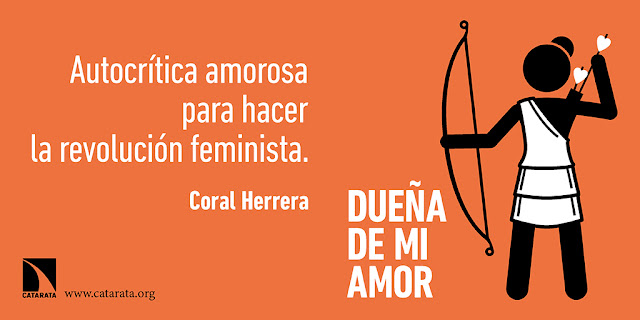How do men relate to feminism? Shortly after the feminist revolution of the 60s and 70s, some men started coming together to discuss all these issues and to work on the patriarchies that inhabit them on a personal and collective level.
Since their emergence in the 1980s, studies on masculinities have been gaining increasing importance. In the 1990s, it also became a social and political movement that is still very much a minority today, but is already widespread in many countries. There are more and more groups of men working on patriarchies, more and more are choosing to join the advancements of the feminist struggle, and more and more are contributing to this process of collective transformation.
These groups of men are talking about how patriarchy affects them, how they follow gender mandates, how they learn to be men, how they learn to suppress and emotionally mutilate themselves, how they take care of themselves and others.
They write in magazines, create their blogs, organize congresses and events, hold and offer workshops, gather in men's circles, organize rallies against male violence in city squares, issue statements, participate in feminist spaces, engage in online activism. They are the feminist men, or allies of feminism, or egalitarian men, but they are a minority.
The vast majority of men are somewhat confused by this women's revolution in which they cannot be the protagonists. They don't know whether to be for or against it. It's more appealing to be in favor, but it seems that revisiting their privileges and patriarchies terrifies them. Many believe that feminism might feminize them and strip them of their masculine power.
This confusion leads many to react defensively to female empowerment, because as women gain rights, they lose privileges. Many think they are living in a battle of the sexes, when in reality what we are experiencing is a genuine war against women. We women go into battle defenseless, and we are attacked with blows, axes, shots, stabbings, hammer blows, and impalements.
According to the latest report on male violence from the UN, the most dangerous place for women is the home. We are attacked at home by our boyfriends, suitors, husbands, and ex-husbands. They kill us every day, in every country in the world: 1 woman every 5 minutes, 6 women every hour, 137 per day, 87,000 per year worldwide.
Feminism hasn't killed anyone; sexism kills every day. And yet, the men who feel threatened by the feminist revolution haven't stopped to consider how patriarchy also chains them, limits them, oppresses them, and makes them suffer. They also haven't thought about how their patriarchy affects others, especially the women around them, because doing so would require them to change and transform their lives.
In general, people are unable to comprehend the patriarchal structure we live in because it's not talked about, and there are those who believe it's an invention of feminists trying to dominate men. The education system teaches us about capitalism but not about patriarchy, leaving a significant gap in our understanding of how our economic system functions and how our relationships are shaped.
Patriarchy is the social, political, economic, cultural, sexual, and emotional structure in which we live and relate to others. It's a hierarchy in which men occupy the top of the pyramid, and women the bottom. The patriarchal world is based on power struggles, the exploitation of women, and violence.
Experiencing love as a joyful endeavor is nearly impossible within this patriarchal structure. Building egalitarian relationships based on companionship is challenging because we've been educated to relate from a framework of dominance and submission, and to exert power from either position. Consequently, it's extremely difficult to love well and enjoy both sex and love.
Patriarchal men are obligated to be strong, tough, primary providers, protectors, competitors, and achievers. They must win every battle, suppress themselves, mutilate their emotions, and constantly demonstrate their virility. Being an obedient man is exhausting, as most of their energy is directed toward power struggles, displays of strength and virility, and the need to assert dominance over others.
The more insecure a man is, the more violent he becomes: most alpha males are frightened boys with inferiority complexes and fears that haunt them for life, and that torment others. This is a result of an education based on misogyny; from a young age, they shy away from femininity because masculinity is constructed upon a triple negation: I am not a girl, I am not a baby, I am not homosexual. Elisabeth Badinter explains in her work how boys learn to associate everything negative with women: weakness, cowardice, sentimentality, stupidity, vulnerability, clumsiness, malevolence.
The male heroes that men admire are individuals without partners or families who don't know how to love or care. They only surround themselves with other men like them to save the world, fulfill a mission, have fun, rent women, conduct business. The reward they receive at the end of their battle is a good, sweet, devoted woman who waits for their arrival to heal the warrior's wounds, nourish him, meet his basic needs, obey him, love him unconditionally, make him happy, and give him children.
Boys who admire these heroes learn from a young age to defend their freedom. Throughout patriarchal culture, the message is that men must defend themselves from women, as they are the enemies. All women want to capture them through their charms and sexual power, and they must resist like Odysseus resisted the enchantment of the evil and seductive sirens.
Essentially, the idea that patriarchy conveys through culture is that there are a few good women, like the princesses in movies who dedicate themselves to waiting, while most are bad women who want to enamor men to confine them to the household, exploit them economically, isolate them from their loved ones, destroy their self-esteem, manipulate them at their whim, make them submissive, and break their hearts.
This is one of the reasons why patriarchal men aspire to enjoy a very diverse sex life, but hesitate greatly before falling in love or emotionally committing to a woman. We suffer alongside men who don't fall in love, don't open up, don't share themselves, and don't emotionally commit. We spend months and years with men who don't trust us.
They don't see us as perfect as the princesses in fairy tales. They aspire to find a honest and loyal woman who will never betray them, who will let them take the lead, who will be accommodating and self-sacrificing, who will be a slave to love. Independent women scare them.
They don't know how to relate to an autonomous woman on an equal footing: they only learn to build companionship with other men. And this greatly limits them when it comes to relating to women on a sexual and emotional level, because they always have the handbrake on, fearing to increase the intensity and speed.
Men who never delve into the depths and remain on the surface are incapable of enjoying love. And we suffer because we've been sold the story that if we wait and are patient, eventually the prince charming will fall in love with us.
These messages directly appeal to our ego: they tell us we are wonderful, and no man can resist our charms, and that if we resist and endure suffering, we will receive our reward – he will realize, end up in love and kneeling like Don Juan before Doña Inés, and offer us the throne of marriage. However, the reality is that most relationships with walls and obstacles to love do not work, and they make us all suffer in vain.
Relationships among men are also complicated because patriarchal males live in constant fear of homosexuality. They only kiss, touch each other's buttocks, and rub bodies when they score a goal playing football – the rest of the time they are constantly suppressing themselves or repressing others with the typical jokes of patriarchal homophobia. And, of course, the ones who have the hardest time are homosexual and bisexual men.
Many heterosexual men experience their sexuality in relation to other men. In other words, when they have relations with women, they are actually thinking about the admiration and envy that others will feel for their ability to hunt beautiful females, their sexual potency, and fertility.
For men raised in patriarchy, their virility depends on the number of women they can penetrate. That's why being in a monogamous and formal relationship subtracts points for them, and many try to remain single for as long as possible. However, once they marry, many of them continue to enjoy their sexual diversity and deny their partner the same possibility.
For many men, love is a prison, though it's also a palace in which they feel like kings. Patriarchy offers them a reward for entering the institution of marriage and family: they can enjoy a housemaid and an assistant who takes care of them and works for them for free, available 24 hours a day.
Perhaps this is the privilege they find hardest to relinquish: women's double workdays provide men with much more leisure time than their partners, and therefore, a higher quality of life.
Today, household chores have become one of the most important battlegrounds in couples and families: women are rebelling against their roles as maids and servants, while many men deeply resist sharing responsibility for caregiving and household tasks, merely limiting themselves to "helping" around the house.
For men, love is something secondary in their lives; for women, it's at the center. We learn to love differently; our aspirations and dreams are distinct; our ways of forming bonds are different, even our sexual desires are different. That's why we suffer so much when we fall in love: men and women speak different languages and have different conceptions of love.
Many feminist women dream of a love that makes us equal to men. We've been sold that impossible myth that links feminism and romantic love, making us believe that if we find our prince charming, we can build an egalitarian relationship based on companionship, mutual respect, tenderness, pleasure, cooperation, solidarity, mutual assistance, and teamwork.
We dream of sharing life with an honest, loyal partner with whom we can fight against patriarchy. But truly finding a man like that is harder than finding a needle in a haystack.
While we dream of new men who work on dismantling their patriarchal behaviors, most still dream of the princess who waits and loves unconditionally. But they can't find her. While we search for men who don't need to make women suffer to feel powerful, many continue collecting conquests to boost their ego and feel macho.
Women who no longer suffer for love are dismantling the entire structure that leads us to voluntary submission to men through love. One of the things we're working on the most is staying away from men with masculinity issues.
We've personally experienced how these masculinity issues affect us, and we know that we weren't born to save any man or to educate him as if he were a child. We're seeking partners who can work on their own patriarchal conditioning just as we do, who can create their own tools to learn how to relate in an egalitarian, peaceful, and loving manner.
Since schools don't teach us how to love ourselves well, how to resolve conflicts without resorting to violence and harming each other, how to express our feelings, we will have to find a way to learn. Nobody helps us manage strong emotions; we don't know how to communicate assertively. They don't teach us about sexism, nor do they provide tools to work against it; they don't teach us feminist theory, and we're oblivious to the history of feminist struggles. Schools don't teach us how to negotiate through dialogue, how to relate without violence, so for now, it's a task that each of us must undertake. We need to read a lot, listen, engage in conversations about these subjects to find a way to treat ourselves better, to love ourselves better, and to dismantle sexism and patriarchy.
We're in a historic moment: patriarchal masculinity is in a deep crisis, and there are no more excuses for not freeing ourselves from the sexism within each of us. It's time to declare rebellion against gender mandates, to shed the myths, to put on the violet-tinted glasses, to engage in individual and collective self-critique, and to activate our imagination to collectively design a better world.
There's no other path but forward: we must analyze our reality through a gender lens to understand how we construct our masculine, feminine, or non-binary identities, and to comprehend why we relate and love the way we do, rather than differently. It's an analysis from the outside in: it involves seeing how we've internalized patriarchy through culture and socialization, how we reproduce and transmit it to new generations, how we organize based on that ideology, how it affects us, and how it affects our loved ones, how it limits us, how it makes us suffer, how it prevents us from enjoying love and life.
It's a thrilling process, as it's not just about deconstructing and dismantling biases, myths, stereotypes, or gender norms. It's also about getting creative to invent new forms of masculinity and new ways of organizing and relating, designing new strategies to free ourselves from patriarchy, and learning to love ourselves without fear, without power dynamics, without abuse, and without violence.
Collectively, we can find ways to live better, to love ourselves well, to build a more equal, peaceful, and loving world. A world where everyone fits and where rights are accessible to all.
In this book, you'll find many questions that can help you generate new inquiries and work on the topics of masculinities and feminisms, sexual and romantic relationships, and how men relate to themselves, each other, and women.
The underlying philosophy of this work is that other forms of masculinity are possible, and other ways of loving are possible: it's a hymn to optimism and a call to action. I invite you to open your hearts to Love Revolution.






